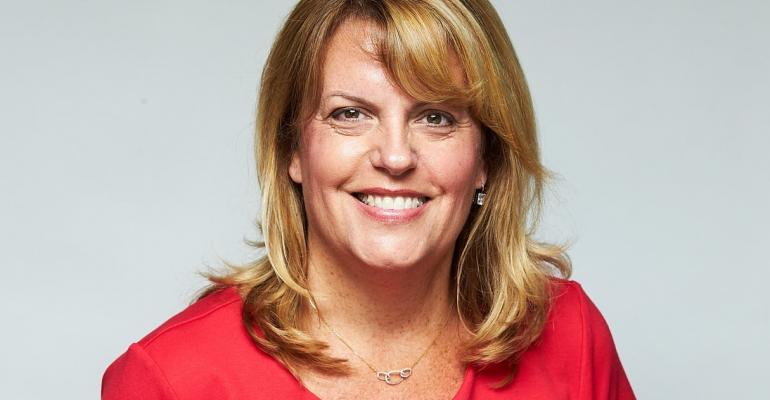When the Professional Convention Management Association kicks off its annual EduCon event in New Orleans on Sunday, June 5, there will be a new and important person on site who is central to the overall experience.
Kim Gishler, who for the past 12 years has served as president and CEO of the Corporate Event Marketing Association—an organization that PCMA acquired in December 2020—recently became PCMA’s vice president of global events and experiences. She will continue to helm CEMA while providing leadership and direction to PCMA global events.
As CEMA’s president, Gishler led a strategic transformation that tripled CEMA’s membership and created steady attendance gains for CEMA events. CEMA is recognized as a central community for event-marketing leaders, with Gishler forging strong partnerships with many event-services vendors and working with CEMA’s board to enhance the association’s professional development, networking, and event experiences.
One learning initiative that Gishler initiated at CEMA is the event-study tours program: behind-the-scenes, under-the-hood views of how events are planned and executed across various industries. The program included opportunities for members to share best practices both at CEMA events and via the “Ask CEMA” online program, as well as “pop-up” organic social-media sharing events.
In early June, just a few days before PCMA’s EduCon would introduce Gishler to her new audience, MeetingsNet caught up with her for a quick interview.
MeetingsNet: It’s interesting that you lead CEMA, an organization focused on corporate events, but are now also responsible for guiding the educational offerings and aimed at association-event planners. What will be the biggest difference in how you approach each audience?
Kim Gishler: CEMA content tends to have more of an event-executive-to-event-executive focus. There’s a lot of peer-sharing that focuses on strategy, best practices, issues/approaches, and trends, with a particular emphasis on [attendees’] roles leading their marketing organizations, relationship building, team development, and the new dynamic of events contributing directly to their brands’ marketing and sales activity and metrics. In short, it’s about these folks having a seat at the table in the executive suite.
Association-event planners also benefit from this type of content, but there must be an added emphasis on training, skills development, certification, and operational excellence.
MeetingsNet: On the flip side, what are the commonalities when it comes to corporate and association events that you want to present to PCMA’s audience that will help them in their work?
Gishler: A few areas come to mind:
First, understanding how to capture, harvest, and use event data. With digital and hybrid events becoming permanent formats in event portfolios, event executives now have access to all sorts of participant interest, engagement, and behavior data. New technologies for in-person events, in particular mobile event apps, also capture rich attendee data, all of which can be integrated into sales and marketing tech stacks to enrich customer profiles and drive insights into their journey.
Every event professional is going to have to have a basic understanding of what data is available and how it can be used to drive value. That doesn’t mean we have to learn data science; we just have to learn fundamental data concepts and work with sales and marketing data teams to integrate event data into those stacks. Also, we must understand the new metrics and insights event data can drive.
Next, there’s the next-gen experiential and event production/management technologies. We’re in early stages with tech like virtual and augmented reality and now extended reality (XR) and the metaverse, and we need to get smarter on what these are, what they can do, and how best to utilize them to create incredible experiences. And there are a lot of great production and management platforms available to help streamline production of multi-format, multi-regional events and remove friction from attendee onboarding and at-event activity planning.
There’s also new opportunities to create partner and sponsor value. Digital events and digital extensions to in-person events create many interesting ways for us to package value-added options like sponsored on-demand content, custom virtual showrooms, and virtual meeting and demo rooms. Basically, creating smaller and more intimate engagements with key decision-makers, while extending large-scale engagements to a much broader audience, wherever they may be. These are just some of the opportunities.
Lastly, there’s event security and safety. The pandemic has shown us that we must constantly evaluate and plan to mitigate existing and potential risks to event participants. This is one area where sharing best practices, new approaches, and expert insights will benefit the whole event industry as well as the brands and associations that plan and run them.
MeetingsNet: Is it difficult to design and market events to people who do that job for a living?
Gishler: Yes and no. It’s challenging because we’re all experienced pros and we know quickly whether something is working or will work, or if it’s not. The bar for excellence is very high. That said, because our members are outstanding event executives and work side-by-side with us to create, plan, and execute our sessions, those events reflect a high level of experience and creativity. And this is true of large gatherings like CEMA Summit and smaller ones like our CEMA Connects talks, which are basically free-form virtual conversations around a pressing industry topic that are highly popular and well attended.
MeetingsNet: What is one thing that people would be surprised to learn about you?
Gishler: I am a minister’s daughter.
MeetingsNet: That’s interesting! What did you learn from your dad that helps you in your work?
Gishler: Two things: Listening is key, and you must treat everyone with respect.





